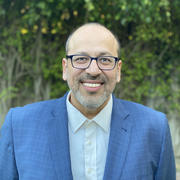
The Department of Organismic and Evolutionary Biology proudly announces Professor Peter Girguis as one of fifteen scientists awarded the Gordon and Betty Moore Foundation grant as part of the Symbiosis in Aquatic Systems Initiative investigator program. The international cohort of current and emerging leaders in aquatic symbiosis research will receive five years of unrestricted support to pursue innovative, risky research that has high potential for significant conceptual and methodological advances in aquatic symbiosis. The collective and its complementary research is expected to have a significant scientific impact and to move the community towards a more comprehensive understanding of the origins, evolution, physiology, ecology and natural history of aquatic symbioses
Professor Girguis has long been among the forerunners of deep-sea hydrothermal vents and seeps research, in particular deep-sea symbiosis. As a graduate student he developed an interest in understanding how two organisms share the energy and resources they collectively require. In his quest for answers, Girguis assembled information from his advisor Dr. James Childress, University of California Santa Barbara, and university machinists and engineers to lead the effort to develop the first autonomous high-pressure respirometry system that accurately simulates the physical and chemical conditions of the deep sea. Childress and Girguis used the system to study metabolic rates of deep-sea hydrothermal vent tubeworms, aiding in many key discoveries including tubeworms’ immense capacity for sequestering carbon dioxide into biomass. Girguis and colleagues are currently using this information as a possible means of offsetting carbon emissions from power plants.
“My research focuses on understanding how two organisms share resources, as well as between the broader members of the community,” said Girguis. “We work to understand how these symbioses change the environment around them, making them habitable for other members of the community.” Girguis’ research team is deeply engaged in using these engineering approaches—from pressure vessels to underwater chemical analyzers—alongside genome and protein sequencing to help understand the genetic processes that govern the symbioses’ activities.
“I am very grateful for the opportunity to work with the Moore Foundation and with the extraordinary scholars they have selected for this program,” said Girguis. “As the child of immigrants, I’ve struggled to navigate my way through academia. Today, thanks to so many people who helped me along the way, I have an opportunity to work with the Foundation and the other scholars to advance our understanding of these ubiquitous marine symbioses, to support one another in our research, and—most importantly—to be vigilant in using this opportunity to improve access to science for people from all walks of life.”
